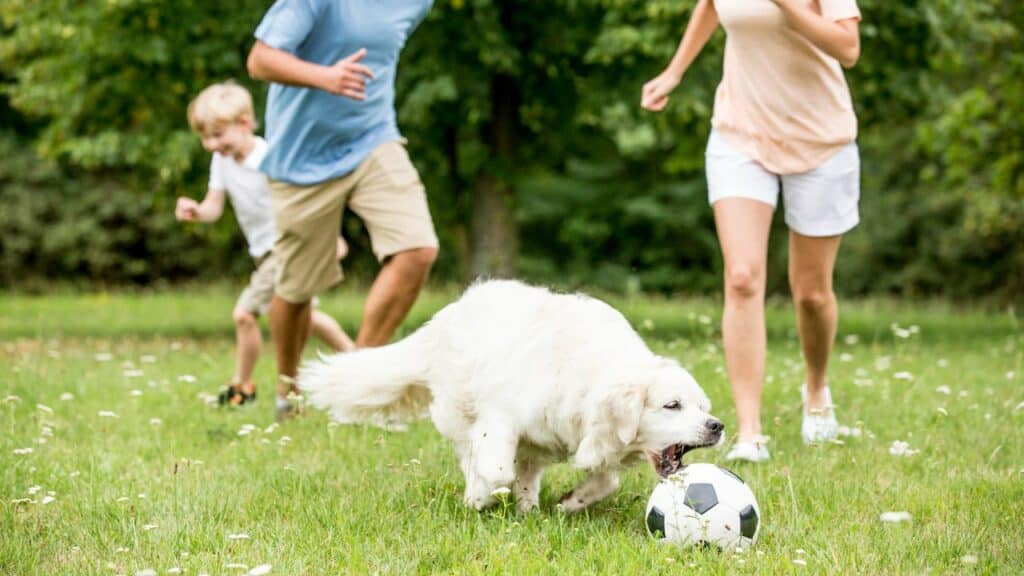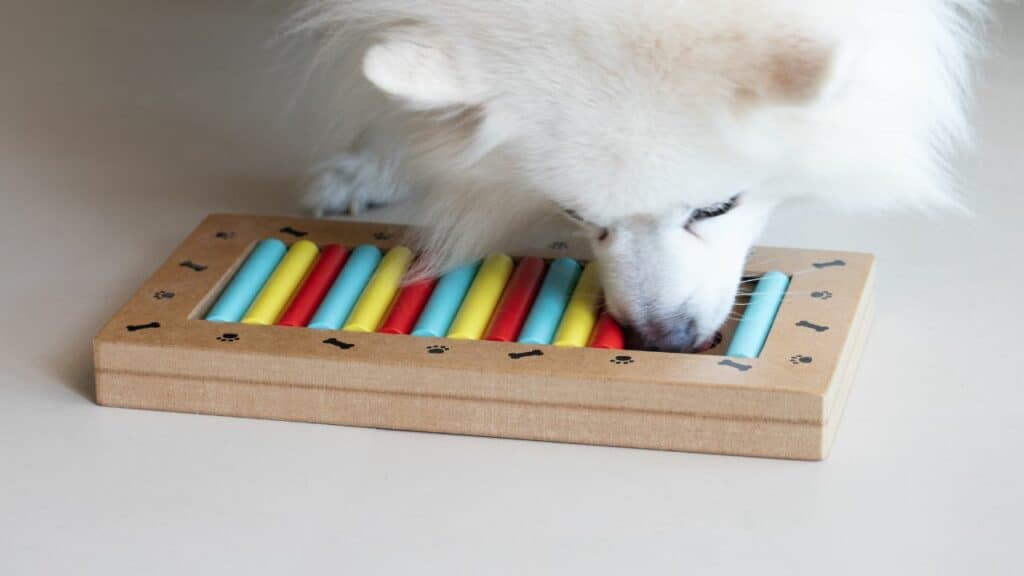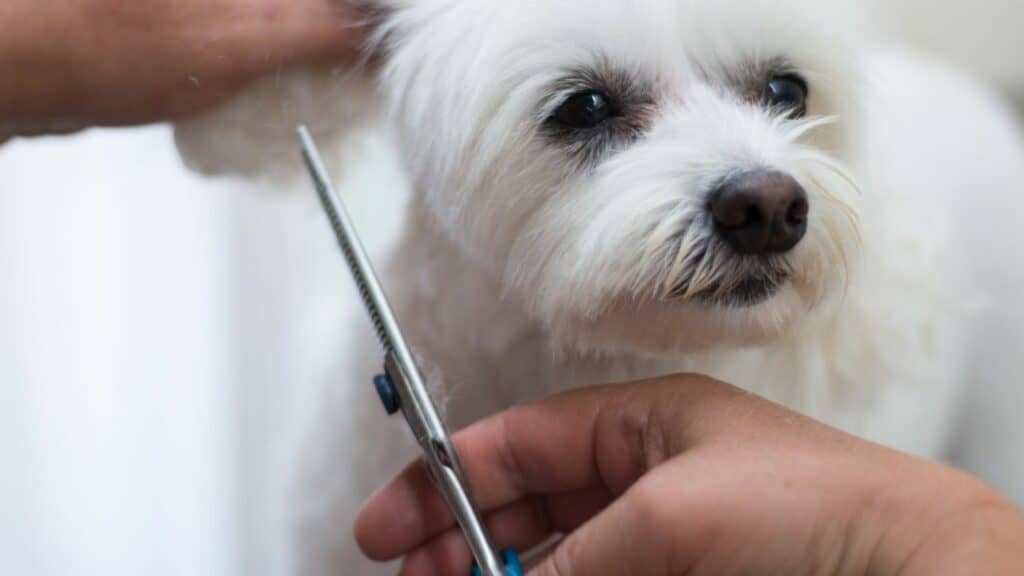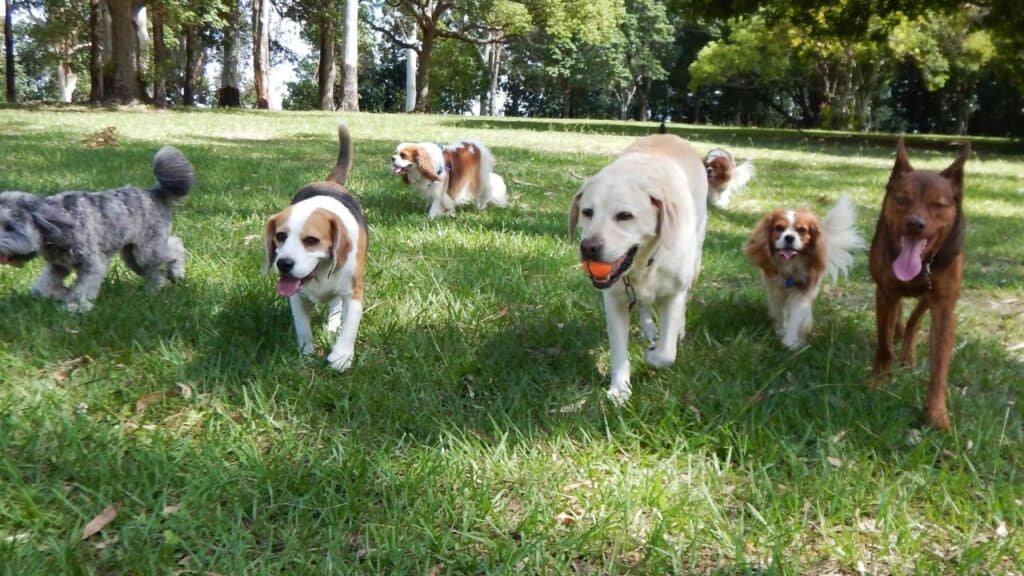Attention dog owners!
Are you ready to unleash the secrets to instantly improving your furry friend’s life?
We all want the best for our loyal companions, but sometimes we forget that a few simple actions can make a world of difference.
From boosting their happiness to enhancing their overall well-being, this article reveals the 19 crucial things you should do for your dog more often.
Brace yourself for a captivating journey that will tap into your dog’s deepest needs and desires.
Get ready to transform your dog’s life with these essential tips that will make tails wag and hearts soar!
1. Spend Quality Time Together

Dogs are social animals, deeply craving companionship and interaction with their human family members.
Make it a priority to dedicate quality time to your canine companion.
Engage in activities that strengthen your bond and bring joy to both of you.
Whether it’s playing fetch in the park, going for long walks, or simply snuggling on the couch, these moments of connection create a sense of security and happiness for your dog.
By actively participating in their lives, you are fulfilling their need for social interaction and enhancing their overall well-being.
2. Exercise Regularly
Physical exercise is essential for dogs to maintain a healthy weight, keep their muscles strong, and stimulate their minds.
Regular exercise also plays a significant role in preventing destructive behaviors resulting from boredom or excess energy.
Take your dog for daily walks, allowing them to explore their surroundings, engage their senses, and interact with their environment.
Play interactive games like fetch or tug-of-war to further enhance their physical and mental stimulation.
For more active and energetic dogs, consider agility training or other activities that cater to their specific needs.
Regular exercise not only improves your dog’s physical health but also contributes to their mental and emotional well-being.
3. Provide Mental Stimulation

Just as humans need mental challenges to stay sharp, dogs also require mental exercise to keep their minds stimulated and active.
Providing regular mental stimulation prevents boredom, reduces anxiety, and encourages problem-solving abilities.
Introduce puzzle toys or treat-dispensing toys that require your dog to think and strategize to obtain its reward.
Engage in obedience training sessions that incorporate new commands or tricks.
These activities not only keep your dog mentally engaged but also deepen the bond between you through positive reinforcement and communication.
By catering to their intellectual needs, you will witness a happier and more contented companion.
4. Feed A Balanced Diet
A nutritious and balanced diet is vital for your dog’s overall health and well-being.
Consult with your veterinarian to determine the appropriate food type, portion sizes, and feeding schedule that suits your dog’s specific needs.
A balanced diet supports their immune system, maintains a healthy weight, and promotes optimal organ function, providing them with the energy they need to lead a vibrant and active life.
5. Offer Fresh Water
Proper hydration is essential for your dog’s health.
Make sure to provide clean and fresh water throughout the day.
Regularly check the water bowl to ensure it’s filled, especially during hot weather or periods of increased physical activity.
Adequate hydration supports vital bodily functions, aids digestion, and helps regulate body temperature.
6. Groom Regularly

Regular grooming not only keeps your dog looking its best but also promotes a healthy coat and skin.
Brush your dog’s fur to remove tangles, dirt, and loose hair.
Trim their nails to prevent discomfort and potential injuries.
Clean their ears to prevent infections, and bathe them as needed using dog-specific shampoos.
Grooming sessions provide an opportunity to bond with your dog while ensuring their comfort and hygiene.
7. Take Them To The Vet
Schedule regular veterinary check-ups to monitor your dog’s health, update vaccinations, and detect any underlying conditions early on.
Routine visits to the vet enable proactive care, allowing for timely treatment and prevention of potential health issues.
Your veterinarian will conduct thorough examinations, provide necessary vaccinations, and offer valuable guidance on maintaining your dog’s well-being.
8. Practice Dental Hygiene
Good oral health is essential for your dog’s overall health and longevity.
Regularly brush your dog’s teeth using dog-friendly toothpaste and toothbrushes.
Alternatively, provide dental treats and toys designed to promote dental hygiene.
Poor dental hygiene can lead to gum disease, tooth decay, and other oral infections that may cause pain and affect your dog’s overall well-being.
9. Socialize Your Dog

Proper socialization is crucial for your dog’s mental and emotional development.
Expose them to various people, animals, and environments from an early age.
This exposure helps them become well-adjusted, confident, and less prone to anxiety or fear.
Engage in positive interactions with other dogs, attend training classes, or organize playdates to foster healthy socialization skills.
10. Teach Basic Obedience Commands
Training your dog in basic obedience commands is not only beneficial for their safety but also strengthens the bond between you and your furry friend.
Teach commands such as sit, stay, come, and leash walking to enhance their communication skills and improve their overall behavior.
Positive reinforcement techniques, such as treats and praise, encourage learning and make training an enjoyable experience for both of you.
11. Provide A Comfortable Sleeping Area
Just like humans, dogs need a comfortable and secure place to rest and relax.
Ensure that your dog has a cozy and safe sleeping area.
Invest in a comfortable bed or crate and provide appropriate bedding to offer them a sense of security and a place to retreat when they need some downtime.
By providing a designated sleeping area, you create a sanctuary where your dog can rest peacefully and wake up refreshed.
12. Give Them Appropriate Chew Toys

Chewing is a natural instinct for dogs, and providing them with appropriate chew toys is essential for their mental and physical well-being.
Opt for durable and safe chew toys that are designed specifically for dogs.
These toys not only keep your dog mentally engaged but also promote dental health by reducing plaque and tartar buildup.
By satisfying their natural urge to chew, you can prevent destructive chewing behaviors and redirect their energy towards something positive.
13. Rotate Toys And Provide Variety
Keeping your dog’s toy collection fresh and exciting is crucial to prevent boredom and stimulate their curiosity.
Regularly rotate their toys, introducing new ones to pique their interest.
This simple practice helps prevent toy fatigue and ensures that your dog remains engaged and mentally stimulated.
Additionally, engaging in interactive play with different toys strengthens the bond between you and your furry friend and brings an element of fun to their daily routine.
14. Practice Positive Reinforcement
Positive reinforcement is a powerful tool in shaping your dog’s behavior and strengthening the bond between you.
Reward your dog’s good behavior with praise, treats, or playtime.
By focusing on the positive and acknowledging their achievements, you encourage and reinforce desired behaviors.
This positive approach fosters a sense of trust, respect, and happiness in your dog, making training and daily interactions more enjoyable for both of you.
15. Keep Them Safe
A safe environment is essential for your dog’s overall well-being.
Regularly inspect your surroundings to ensure that your dog’s environment is free from potential hazards.
Check fences and gates for any gaps or damage that could lead to escape.
Keep toxic substances, plants, and small objects out of their reach to prevent accidents or ingestion of harmful substances.
By prioritizing their safety, you provide peace of mind and create an environment where your dog can thrive.
16. Planning Regular Outings

Dogs are naturally curious and love exploring new environments.
Break the monotony of daily routines by planning regular outings to parks, hiking trails, or dog-friendly cafes.
These outings provide your dog with new experiences, sensory stimulation, and opportunities to socialize with other dogs and people.
The sights, sounds, and smells they encounter during these outings will keep their minds engaged and their senses heightened.
By exposing your dog to different environments, you’re giving them a chance to explore and satisfy their innate curiosity.
17. Massage And Physical Touch
Just like humans, dogs benefit from physical touch and gentle massages.
Spending quality time each day gently massaging your dog’s muscles and petting them not only promotes relaxation but also strengthens the bond between you and your furry companion.
Massaging your dog’s body helps relieve muscle tension, improves blood circulation, and can have a calming effect on the nervous system.
This act of touch communicates love, comfort, and security, enhancing their
overall well-being.
18. Engaging In Interactive Play
Interactive play is an excellent way to provide mental stimulation, and physical exercise, and strengthen the bond between you and your dog.
Engage in games like hide-and-seek or tug-of-war that require your dog to use their problem-solving skills and physical abilities.
These activities tap into their natural instincts and keep them mentally and physically stimulated.
Interactive play also allows for quality time and provides an opportunity for you and your dog to enjoy each other’s company while having fun.
19. Practicing Relaxation Techniques

Just like humans, dogs can experience stress and anxiety.
Practicing relaxation techniques can help your dog unwind and find inner calm.
Play soothing music specifically designed for dogs, use calming scents through aromatherapy, or create a quiet and comfortable space where your dog can retreat.
This quiet time allows them to decompress, reducing stress levels and promoting a sense of tranquility.
By incorporating relaxation techniques into their routine, you can help your dog find balance and improve their overall well-being.
Before You Go…
If you want to learn more, watch the following video.


